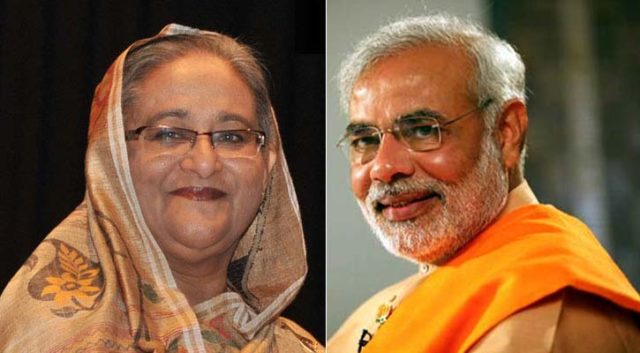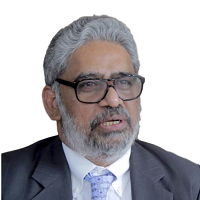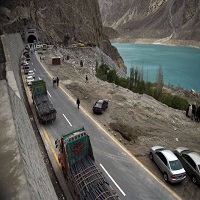The BJP’s sweep in Uttar Pradesh and Uttarakhand state polls is a huge boost to Prime Minister Narendra Modi’s image.
Those in the party who were blaming Modi for demonetisation and the adverse impact it might have on the electoral fortunes are now praising him for his ability to take huge risks and hard sell controversial moves as ‘new politics’.
Modi has also demonstrated his appeal beyond India’s west and northern regions — the BJP has emerged as a close challenger to the ruling Congress even in Manipur in the country’s far east.
Only in Punjab has the BJP-Akali Dal coalition got a huge drubbing and the Congress is back in power under the leadership of former chief minister Captain (retd) Amrinder Singh.
Many analysts now say Modi has rediscovered his magic with demonetisaton. After leading the BJP to a historic victory in 2014 parliament polls, Modi failed to win Delhi and most other Indian states that went to polls in 2015-16, except Assam.
But the victory in UP, India’s most populous and politically vital state, is a big boost to BJP and makes over for the loss of Bihar a year ago. Even in far off Manipur, the BJP has given the ruling Congress a run for its money.
Some say this nicely sets up the BJP on course for a return to power in 2019.
The Congress has been wiped out with its ally, UP’s current ruling Samajwadi Party and in Uttarakhand where it ran the government.
“The BJP is emerging as India’s only national party, the Congress is just withering away, and Modi’s real challenge now are some powerful regional parties,” says psychologist Pranay Roy, who also heads NDTV.
“Modi is standing taller than any other Indian leader at the moment,” says TV anchor and author Rajdeep Sardesai, once his bitter critic.
While other regional parties down south and elsewhere in the country have maintained ‘working relationship’ with Modi, West Bengal chief minister Mamata Banerjee has emerged as his fiercest opponent, especially after demonetisation.
BJP leaders have attacked Mamata for being “in cahoots” with Islamist radicals, for being ‘a patron queen of jihadis’ and for paying Imams a dole.
Modi has unleashed the CBI to investigate the ponzi schemes like Saradha and Rose Valley — top Trinamul leaders like Sudip Banerjee (the party’s leader in parliament) are already behind bars.
Banerjee has emerged as the key link for Opposition unity moves in the parliament to protest demonetisation.
BJP insiders indicate that with UP wrapped up, Modi would turn to tackle Mamata Banerjee and unsettle her in West Bengal to ensure no move for Opposition unity takes off.
For a prime minister ever keen to use foreign policy moves for domestic purposes, it may now will be a case of reverse — use a major poll victory to push through a foreign policy issue stalemated by a powerful regional satrap.
Modi looks all set to bring huge pressure on West Bengal chief minister Mamata Banerjee to get her go-ahead for sealing the deals on Teesta water sharing and Ganges Barrage.
Indian water experts and officials of its water resources minister have already cleared the proposed agreements on both these issues, despite objections by the West Bengal government.
BJP leaders say Modi values Bangladesh’s friendship and does not want Dhaka drift away towards China because of India’s failure to deliver on the water sharing deals.
“Since he has criticised his predecessor Manmohan Singh for chickening out of taking tough decisions, it is time for Modi to prove he is different,” says Bangladesh-watcher Sukharanjan Dasgupta, author of ‘Midnight Massacre” on the 1975 coup in Bangladesh.
“He may make one last effort to convince her to fulfil India’s sovereign commitment to a friendly neighbour, but if that does not happen, he will perhaps consider going ahead on his own,” says Dasgupta.
BJP’s former West Bengal president and now Tripura governor Tathagata Ray has already strongly pitched for “respecting Bangladesh’s rights as a lower riparian”.
Other BJP leaders dealing with West Bengal — Kailash Vijayvargia and Siddhartha Nath Singh — are all for a hardline stance against the Mamata government. The RSS leaders also want Modi to act tough with Mamata because they see her “in cahoots with Islamist radicals”.
Modi gains if he does the water deals with Hasina after giving Mamata a chance to change her stance.
The Congress and the Left parties will have to back Modi, not Mamata, if he seals the deals with Hasina because they had tried to do it themselves when in power.
Mamata will stand completely isolated if she tries to oppose.
A recent CSDS-Hindu poll has shown Bangladesh is the country Indians feel they could trust the most — 48% against India’s traditional ally Russia (46%).
Much of this follows from Hasina’s very friendly gestures and no Indian party will oppose a fair deal on the waters with Bangladesh, what with Bihar chief minister Nitish Kumar even suggesting the demolition of the Farakka Barrage.
Hasina’s ratings as a friend of India is high across the country — and for good reason. No prime minister of a neighbouring country has done so much to address India’s security and connectivity concerns as she has.
Modi’s National Security Advisor Ajit Doval has said in private that India must honor its sovereign commitment to a friendly neighbour to boost a leader like Hasina and it is important to do her a real good turn, even if it means upsetting an already hostile Mamata who is seen now as BJP’s enemy no 1 at the moment.
If Modi has to live up to his image of a tough leader not averse to risks, his close aides suggest he might take on Mamata and go ahead with the deals with Bangladesh, come what may.
If Mamata responds with huge public protests, BJP leaders say, she will stand to blame for deterioration of law and order which is her responsibility as someone running the state.
Worse comes to worst, the BJP can consider even promulgation of President’s rule — something their leaders threatened Mamata with when Trinamul cadres attacked the BJP state office in Calcutta on the day Sudip Banerjee was arrested.
Former BJP president and now Tripura governor Tathagata Ray has already pitched very strongly for Bangladesh’s rights as a lower riparian.
Some sources close to Mamata — and she herself — will see the pressure coming.
As a smart tactician, she may trump Modi by changing her line on the water deals and back them — but she may well do the reverse, trying to play the martyr to protect West Bengal’s interest.
Some in her party, on condition of anonymity, say she would gain by backing the deals and lose if she continues to oppose them.
If Hasina fails to get these deals and loses the next election in Bangladesh and a more Islamist regime comes to power in Dhaka, it will surely boost the BJP’s cause in West Bengal and undermine the politics of secularism that Mamata tries to uphold.
Dhaka does not seem to be interested in upsetting either Modi or Mamata — the ruling Awami League knows this better than anyone else that Delhi counts as much for Bangladesh as the neighbouring states, who have usually (except Mamata) backed their government firmly in the past and now.
But the UP polls may be opening up a window on the solution of the vexed water deals (Teesta and Ganges Barrage) that so far looked locked in a stalemate.
















